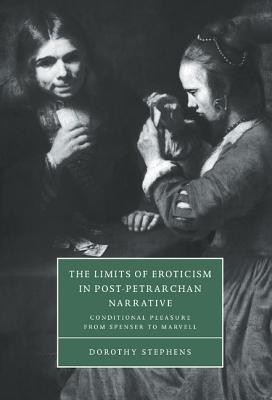
- We will send in 10–14 business days.
- Author: Dorothy Stephens
- Publisher: Cambridge University Press
- ISBN-10: 0521630649
- ISBN-13: 9780521630641
- Format: 15.2 x 22.9 x 1.9 cm, kieti viršeliai
- Language: English
- SAVE -10% with code: EXTRA
The Limits of Eroticism in Post-Petrarchan Narrative (e-book) (used book) | bookbook.eu
Reviews
Description
The poet Petrarch imagined that the hopeless but pure love of a woman could lead a man to heaven. In sixteenth-century England Edmund Spenser wrote poetry in the petrarchan tradition while heightening its dilemmas--flirting with a very different kind of feminine image. Dorothy Stephens shows that this flirtation emerges only in conditional language and situations, and that the eroticism the reader feels often belies a narrator's insistence that it is illusory. She goes on to look at responses to Spenser's eroticism among male and female writers in the seventeenth century.
EXTRA 10 % discount with code: EXTRA
The promotion ends in 22d.01:16:14
The discount code is valid when purchasing from 10 €. Discounts do not stack.
- Author: Dorothy Stephens
- Publisher: Cambridge University Press
- ISBN-10: 0521630649
- ISBN-13: 9780521630641
- Format: 15.2 x 22.9 x 1.9 cm, kieti viršeliai
- Language: English English
The poet Petrarch imagined that the hopeless but pure love of a woman could lead a man to heaven. In sixteenth-century England Edmund Spenser wrote poetry in the petrarchan tradition while heightening its dilemmas--flirting with a very different kind of feminine image. Dorothy Stephens shows that this flirtation emerges only in conditional language and situations, and that the eroticism the reader feels often belies a narrator's insistence that it is illusory. She goes on to look at responses to Spenser's eroticism among male and female writers in the seventeenth century.


Reviews